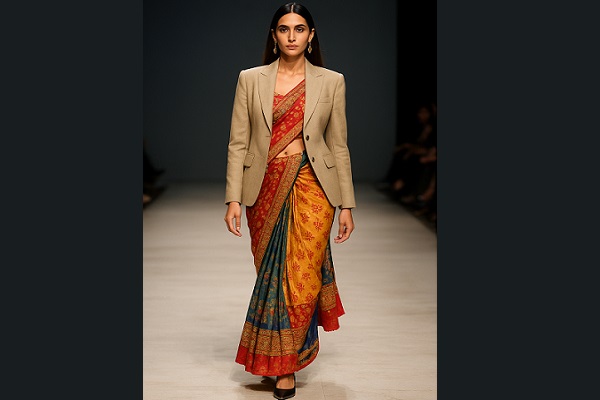
Follow us Now on Telegram ! Get daily 10 - 12 Interesting Updates. Join our Telegram Channel https://t.me/OhWomen
Download Telegram App before Joining the Channel
Fashion is not just about clothing; it is a powerful expression of culture, history, and identity. Across the world, traditional attire carries centuries of stories, craftsmanship, and symbolism, representing the soul of communities. Today, modern designers are increasingly drawing inspiration from these rich cultural fabrics to create contemporary styles that honor heritage while appealing to today’s global audience.
The Intersection of Tradition and Innovation
Traditional clothing is often handmade with intricate techniques like embroidery, weaving, dyeing, and beading. These crafts are passed down through generations, embodying the artistic spirit and cultural values of a region. When modern fashion designers incorporate these elements, they blend history with innovation, giving birth to unique, hybrid styles.
For example, Indian sarees with their delicate zari work and vibrant colors have influenced global fashion runways, inspiring gowns and dresses with intricate embroidery. Japanese kimonos’ elegant lines and minimalist aesthetics have been adapted into modern jackets and robes. African prints and textiles, known for their bold colors and geometric patterns, have become staples in streetwear and high fashion alike.
Preserving Cultural Identity Through Fashion
Using traditional elements in contemporary fashion also plays a crucial role in preserving and promoting cultural identity. Designers often collaborate with local artisans, providing them with sustainable income and a platform for their craftsmanship. This symbiotic relationship keeps traditional skills alive while ensuring that cultural narratives are respected and celebrated on global platforms.
Moreover, fashion inspired by traditional attire encourages consumers to appreciate and learn about different cultures. It fosters cross-cultural dialogue and mutual respect in an increasingly interconnected world.
Challenges and Ethical Considerations
While cultural inspiration enriches fashion, it also raises concerns about cultural appropriation—when designs are borrowed without acknowledgment or respect for their origins. Ethical designers approach this with sensitivity, giving credit to the source culture, engaging with artisans, and avoiding stereotypical or tokenistic use of cultural symbols.
The Future of Fashion and Tradition
As the fashion industry moves toward sustainability and inclusivity, the fusion of traditional attire with modern design is gaining more importance. It offers a pathway to slow fashion, focusing on quality, longevity, and meaningful storytelling rather than fast trends. By valuing heritage and innovation equally, designers are crafting timeless pieces that resonate emotionally with wearers.